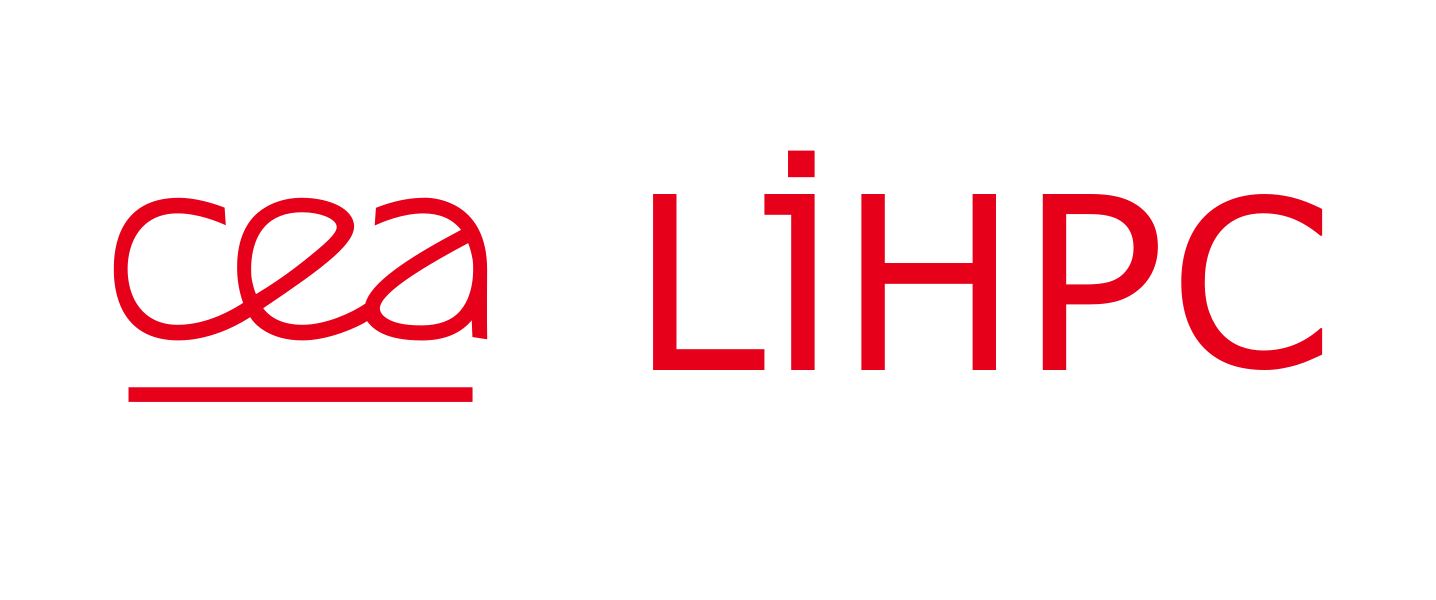Ingénieur-Chercheur, titulaire d’un doctorat en mathématiques appliquées et d’une habilitation à diriger des recherches, nommé directeurs de recherche CEA, François Hermeline travaille dans une équipe de R&D du CEA sur les nouvelles méthodes numériques pour les codes de simulation HPC.
Après des recherches sur :
-
les méthodes de maillages (introduction d’une méthode de maillage automatique par des simplexes de domaines arbitraires en dimension N: méthode dite de Delaunay),
-
les méthodes particulaires déterministes pour les équations de convection (Vlasov) ou de convection-diffusionc (Fokker-Plank) couplées aux méthodes de volumes finis sur des maillages de Delaunay-Voronoi pour les équations de Maxwell,
-
la résolution des équations de la magnétohydrodynamique couplées aux équations de l’élasticité (couplage fluide-structure),
-
la résolution des équations de l’éléctrohydrodynamique pour traiter les instabilités d’un plasma dans la haute atmosphère,
-
les méthodes de volumes finis sur maillages quelconques pour approcher des équations du type diffusion, éventuellement anisotropes et/ou non linéaires (introduction de la méthode dite DDFV: Discrete Duality Finite Volume),
-
la généralisation de la méthode DDFV à la résolution d’équations aux dérivées partielles de type très variés (elliptique, parabolique, hyperbolique comme notamment la photonique PN) sur maillages Lagrangiens,
ses travaux portent actuellement sur les méthodes de volumes finis monotones d’ordre élevé sur maillages quelconques.
François Hermeline a co-encadré trois thèses et est auteur ou co-auteur d’une vingtaine d’articles parus dans des revues scientifiques internationales.
Communications in Computational Physics, 2023


abstract
Abstract
The DDFV (Discrete Duality Finite Volume) method is a finite volume scheme mainly dedicated to diffusion problems, with some outstanding properties. This scheme has been found to be one of the most accurate finite volume methods for diffusion problems. In the present paper, we propose a new monotonic extension of DDFV, which can handle discontinuous tensorial diffusion coefficient. Moreover, we compare its performance to a diamond type method with an original interpolation method relying on polynomial reconstructions. Monotonicity is achieved by adapting the method of Gao et al [A finite volume element scheme with a monotonicity correction for anisotropic diffusion problems on general quadrilateral meshes] to our schemes. Such a technique does not require the positiveness of the secondary unknowns. We show that the two new methods are second-order accurate and are indeed monotonic on some challenging benchmarks as a Fokker-Planck problem.
Computational & Applied Mathematics, vol 42, 2023

abstract
Abstract
When solving numerically an elliptic problem, it is important in most applications that the scheme used preserves the positivity of the solution. When using finite volume schemes on deformed meshes, the question has been solved rather recently. Such schemes are usually (at most) second-order convergent, and non-linear. On the other hand, many high-order schemes have been proposed that do not ensure positivity of the solution. In this paper, we propose a very high-order monotonic (that is, positivity preserving) numerical method for elliptic problems in 1D. We prove that this method converges to an arbitrary order (under reasonable assumptions on the mesh) and is indeed monotonic. We also show how to handle discontinuous sources or diffusion coefficients, while keeping the order of convergence. We assess the new scheme, on several test problems, with arbitrary (regular, distorted, and random) meshes.
Abstract
Monotonicity is very important in most applications solving elliptic problems. Many schemes preserving positivity has been proposed but are at most second-order convergent. Besides, in general, high-order schemes do not preserve positivity. In the present paper, we propose an arbitrary-order monotonic method for elliptic problems in 2D. We show how to adapt our method to the case of a discontinuous and/or tensorvalued diffusion coefficient, while keeping the order of convergence. We assess the new scheme on several test problems.








